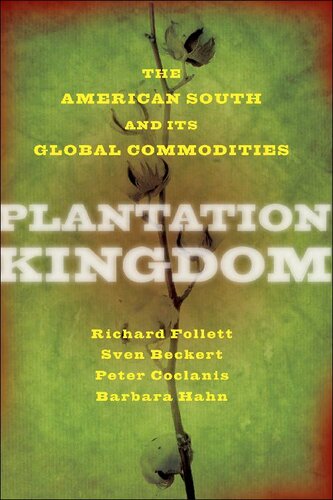

Most ebook files are in PDF format, so you can easily read them using various software such as Foxit Reader or directly on the Google Chrome browser.
Some ebook files are released by publishers in other formats such as .awz, .mobi, .epub, .fb2, etc. You may need to install specific software to read these formats on mobile/PC, such as Calibre.
Please read the tutorial at this link: https://ebookbell.com/faq
We offer FREE conversion to the popular formats you request; however, this may take some time. Therefore, right after payment, please email us, and we will try to provide the service as quickly as possible.
For some exceptional file formats or broken links (if any), please refrain from opening any disputes. Instead, email us first, and we will try to assist within a maximum of 6 hours.
EbookBell Team

0.0
0 reviewsIn 1850, America’s plantation economy reigned supreme. U.S. cotton dominated world markets, and American rice, sugarcane, and tobacco grew throughout a vast farming empire that stretched from Maryland to Texas. Four million enslaved African Americans toiled the fields, producing global commodities that enriched the most powerful class of slaveholders the world had ever known. But fifty years later―after emancipation demolished the plantation-labor system, Asian competition flooded world markets with cheap raw materials, and free trade eliminated protected markets―America’s plantations lay in ruins.
Plantation Kingdom traces the rise and fall of America’s plantation economy. Written by four renowned historians, the book demonstrates how an international capitalist system rose out of slave labor, indentured servitude, and the mass production of agricultural commodities for world markets. Vast estates continued to exist after emancipation, but tenancy and sharecropping replaced slavery’s work gangs across most of the plantation world. Poverty and forced labor haunted the region well into the twentieth century.
The book explores the importance of slavery to the Old South, the astounding profitability of plantation agriculture, and the legacy of emancipation. It also examines the place of American producers in world markets and considers the impact of globalization and international competition 150 years ago. Written for scholars and students alike, Plantation Kingdom is an accessible and fascinating study.